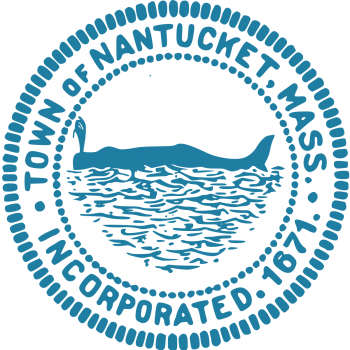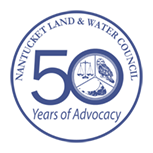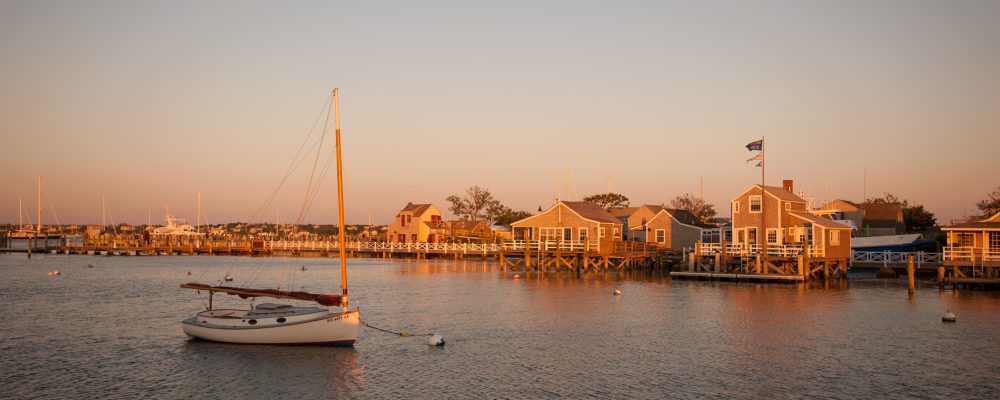 The 2022 Annual Town Meeting has been scheduled for Monday, May 2, 2022 at 5 PM at the Nantucket High School Mary P. Walker Auditorium. Each year a number of articles are submitted, often including those related to zoning, appropriation for road improvements, bike path extensions, groundcover ratio bylaw change, and the leasing of town-owned land, among others.
The 2022 Annual Town Meeting has been scheduled for Monday, May 2, 2022 at 5 PM at the Nantucket High School Mary P. Walker Auditorium. Each year a number of articles are submitted, often including those related to zoning, appropriation for road improvements, bike path extensions, groundcover ratio bylaw change, and the leasing of town-owned land, among others.
Read the 2022 Annual Town Meeting Warrant.
For every Town Meeting, the NLC reviews the warrant and provides recommendations based on articles that would have a negative or positive effect on the environment and natural resources of the island.
Download the Nantucket Land & Water Council recommendations or click on the links below to learn more.
NLC Recommendations (English)
NLC Recommendations (Spanish)
Article 42 – Short Term Rentals
Article 43 – Protective Rights to Short Term Rentals
Article 58 – Special Permits for Apartment Units
Articles 69 & 70 – Single Use Plastics
Article 81 – Amend the NP&EDC Special Act
Article 42 – Short Term Rentals – VOTE NO
The short-term rental industry contributes to more intense development and redevelopment of properties on Nantucket. This development and use puts increasing pressure on the island’s natural resources and infrastructure, from the health of our aquifer, ponds and harbors, to solid waste management, traffic, water and sewer capacity. The accelerating development and repurposing of properties for short-term rentals as a business, especially by off island corporations operating multiple rental properties, also negatively impacts the historic rural character and quality of life around Nantucket.
Article 39 establishes an island Registry for STRs. This is a first step to better track the use of STRs across Nantucket and establish a system for accountability. Article 40 & 41 address the associated revolving account and spending limits for such a registry program.
Article 42 would legalize ALL STRs across the island as an allowable primary use by right under zoning without any associated restrictions or regulations. Currently Nantucket’s zoning bylaw does not allow STRs as a use by right, and in many instances they are being operated as a commercial use in residential districts. Before zoning is to be changed to allow STRs by right, clear regulations must be established first. Changing the zoning bylaw now without any regulations in place would open the door to more commercial STRs without restrictions. A proliferation of STRs could displace more individuals in need of year-round housing which only creates more pressure for additional growth and development. No other town in the Commonwealth has approached short term rentals in this way. It is not in the best interest of the island’s resources or community. Please join the NLC in attending Town Meeting and Vote NO on Article 42!
Article 43 provides an option to eliminate the perceived right and intensity of use of purely commercial STRs in residential neighborhoods. It memorializes year-round residents’ rights to rent their primary residence property short-term. It enables seasonal residents the same right as an accessory use through a special permit. It also enables year-round residents the opportunity to short term rent additional properties as an accessory, or secondary use, with a special permit. Rentals greater than 30 days are not considered short term and would not be affected by these proposed changes. The NLC supports this article as an option to end the increasing commercialization of STRs and the intensity of use that results.
Article 43 – Protective Rights to Short Term Rentals – VOTE YES
Article 43 provides an option to eliminate the perceived right and intensity of use of purely commercial STRs in residential neighborhoods. It memorializes year-round residents’ rights to rent their primary residence property short-term. It enables seasonal residents the same right as an accessory use through a special permit. It also enables year-round residents the opportunity to short term rent additional properties as an accessory, or secondary use, with a special permit. Rentals greater than 30 days are not considered short term and would not be affected by these proposed changes. The NLC supports this article as an option to end increasing commercialization of STRs and the intensity of use that results.
Please join the NLC and Vote Yes on Article 43!
Article 58 – Special Permits for Apartment Units – VOTE NO
Nantucket’s Zoning Bylaw currently allows apartment units in all commercial districts. The current definition of Apartments lays out specific criteria to determine how many apartment units are allowed in a given zone on a given lot. There is a schedule provided that dictates the density of apartment units based on the size of the lot, as follows:
- CDT – One dwelling unit is permitted for each 1,000 sf of lot area.
- CMI – One dwelling unit is permitted for each 2,000 sf of lot area.
- CN – One dwelling unit is permitted for each 3,000 sf of lot area.
- CTEC – One dwelling unit is permitted for each 4,000 sf of lot area.
- CI – One dwelling unit is permitted for each 5,000 sf of lot area.
The citizen warrant Article 58 proposes to amend the definition of apartment allowing the Planning Board to waive the lot area requirements through the issuance of a special permit and allow up to one additional unit than would otherwise be allowed, maintaining the maximum of four. This simply increases density with no additional public benefit. These “bonus units” would not be restricted in any way to support the kind of housing the community needs.
Please join the NLC and Vote NO on Article 58!
Articles 69 & 70 – Single Use Plastics – VOTE YES
Millions of tons of plastic enter our oceans every year, much of it wasteful single-use. It causes harm to marine life – we’ve all heard the story of the unfortunate sea turtle swallowing a grocery bag as its final meal – but it is beginning to cause harm to humans as well. Microplastics, which often carry harmful carcinogens, are being found in the foods we eat and the water we drink.
At Nantucket’s Special Town Meeting in 2018, voters passed a bylaw to ban certain single-use plastics from commercial sale and distribution. The NLC supported the Town’s 2020 Plastics Ban and was part of the Plastics Ban workgroup with stakeholders across Nantucket to ensure effective outreach leading up to the implementation of the bylaw.
The 2020 plastics ban specifically prohibits the commercial sale and distribution of certain single-use plastics including water bottles less than 1 liter, straws and drink stirrers, six pack yokes, drinking cups and lids, non-compostable plates and eating utensils, and non-recyclable coffee pods. In 2021 the bylaw was amended to also include flushable wipes and plastic ear swabs.
Articles 69 and 70 seek to take the 2020 single-use plastics ban even further. Article 69 prohibits the sale, distribution or commercial use of petroleum-based (or glass) containers for alcoholic beverages of less than or equal to 100 milliliters (“nip” bottles). Falmouth, Wareham, Newton and Chelsea have already approved similar bans on “nip” bottles and more towns are following close behind. Article 70 similarly prohibits single use plastic fiber tobacco filter products, commonly encountered as cigarette butts. These items are some of the most heavily littered products across Nantucket. They not only contribute significantly to island litter, they break down very slowly into microplastics that persist in our environment threatening our water resources and wildlife into the future. Join NLC and Vote YES on Articles 69 and 70 to further Nantucket’s efforts to reduce our plastic footprint!
Article 79 – Fertilizer – VOTE YES
Article 79 proposes to ban fertilizer use across Nantucket, with the exception of agricultural uses. This is not the first time a fertilizer ban has been proposed. In fact, the Nantucket Land & Water Council was one of the biggest proponents of this idea back in the 1990’s. The last time this was proposed it resulted in the formation of a work group consisting of various stakeholders charged with working together to address the issue of fertilizer regulation. In 2012 the Board of Health adopted the Best Management Practices for Fertilizer Use on Nantucket (BMPs) into their own Regulation 75.00 (https://www.nantucket-ma.gov/DocumentCenter/View/649/75—Content-and-Application-of-Fertilizer-on-Nantucket-PDF). This lays out the purpose of regulating fertilizer on Nantucket, requires a license for commercial application, cites the BMPs as the standards of practice, and requires the Board of Health to administer an education and licensing program, as well as charge them with enforcement.
Following an initial push to educate the landscaping and residential community about the BMPs and new regulations, as well as establishing the foundation for a licensing program, the implementation and enforcement of the program has diminished dramatically over the past several years. As our island water quality, and specifically Nantucket Harbor ecosystem, has continued to decline, fishermen and citizens alike have continued to question the effectiveness of the regulations and the program.
The citizen warrant Article 79 resubmits a proposal to ban fertilizer use in response to the ongoing deterioration of Nantucket Harbor and freshwater ecosystems across the island. Nantucket has strong and appropriate fertilizer regulations, but the system by which they are implemented and enforced is not working. In the absence of improvements, an alternative approach such as a ban must be considered. Join us at Town Meeting to ask the Town for leadership on fixing our existing regulatory framework, or support Article 79 to send the message that something must be done to address this contributor of harbor pollution.
Article 81 – Amend the NP&EDC Special Act – VOTE YES
Long range planning is a critical responsibility of all governing bodies. Nantucket has a history of long range planning and since 1973 it has been an important responsibility of Nantucket’s Planning and Economic Development Commission (the “Planning Commission”). Article 81 seeks to establish a broader “purpose” of the Commission to specifically include environmental and cultural resources in their charge. It adds new language to promote planning for “balanced economic growth, the preservation of natural resources including open space, coastal resources, ground and surface water and ocean quality as well as other natural resources of Nantucket, the provision of adequate capital facilities, including transportation; the development of an adequate supply of affordable housing; and the preservation of historical, cultural, and recreational values”. The article also outlines a revised membership incorporating more diverse interests and several elected, rather than appointed, members at large.
The Nantucket Planning and Economic Development Commission (NP&EDC) has a history of researching and exploring issues related to the island’s economic growth and development with an evaluation of the implications that growth and development will have on important resources. The NLC recently went through decades of old files and reports. Among those we found were a series of old “Planning Notes”, newsletters from 1990 that were published monthly by the NP&EDC focusing on current planning issues of concern. We also found a number of studies conducted in years past by or for the NP&EDC. These include a 1979 Natural Resource Planning Program for Nantucket as “…an accurate and comprehensive land use/physical resource database that can be updated over time…for responsible planning and management of Nantucket’s future”, the 1993 Nantucket Economic Base Study Report which was intended to be “the next step for future economic development planning on the island of Nantucket”, an update to this study from 1998 “…to assess how the island’s economy has changed since 1993”, and a 1997 Nantucket Community Profile prepared by the NP&EDC to be used for various planning activities. We support an NP&EDC that focuses on the broad scope of economic development on Nantucket, the implications of that development across many interests, and the planning necessary to direct our growth and change.
Article 81 paves the way for our “Planning Commission” to focus on a wider range of issues that are all becoming increasingly important to the future of our community and our island. Join us and Vote Yes on Article 81.

